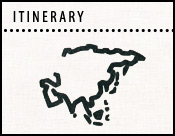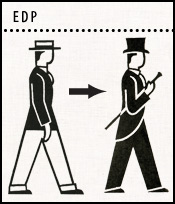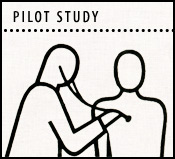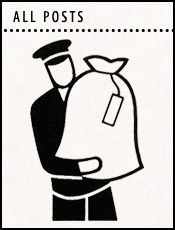December 7th, 2010
Notes from an Adventure Capitalist: Uzbekistan
The Uzbek Sum
The Uzbek sum has been depreciating against the dollar over numerous inflationary cycles as a result of loose monetary policy, creating an excess in the money supply.  How much the currency has actually devalued, and since when, depends on who you ask.  At the time of this writing, the official exchange rate is 1,622 Sum to the USD, though the black market money exchangers quote the rate at 2,230 Sum to the USD. This makes it 37% more desirable to change USD in the bazaar with a man holding a black bag, rather than at any licensed exchange office. Presumably, these money changers sell the dollars at a higher price to firms or individuals intending to trade abroad, or make a sizable domestic purchase such as an automobile.  For the country ranked 150th on the World Bank’s ease of doing business index, this is not surprising.
Both the official and black market rates go up nearly daily, though the black market rate seems to increase even faster, implying that the discrepancy between what the Sum is actually worth and what the central bank is claiming its worth gets greater and greater with each passing day.

In case the situation doesn’t seem absurd enough, the largest currency note is 1000 sum, or 45 USD Cents. This means that to change 200 USD, I’ve got to strap a bag around my waist to hold bricks of bills. Â This, dear reader, you already know from our Uzbekistan dispatches — but it bears repeating. Â Imagine your spending power limited primarily by how much you can physically carry. In the morning, we each pack our wallets with as many bills as they can hold. Â The state capitalizes on this physical limitation as an instrument of monetary policy. Â In an attempt to stave off another inflationary cycle, the National Bank of Uzbekistan has resisted printing larger notes, as non-portability is seen as one of the forces curbing inflation.
Market Information Experiment
Before Uzbekistan, we had never been to a place with such inflation and an ineffective monetary policy that creates such a liquid black market for dollars. Â The information flow of this black market intrigued me, and I wondered how these informal currency traders shared price (and perhaps volume) information with each other. Â Those who are in the know must call a trusted source and get “today’s rate” before going to the market.
An interesting experiment would be to allow all market participants to contribute and share market data through text messages, which could be aggregated on a server and published both on the net, as well as on demand via SMS request. Internet is still spotty in Uzbekistan with a low penetration of personal computers. However, the high penetration of mobile phones makes the SMS interface an attractive option.
Would the website get blocked? Â Probably. Â Would the SMS gateway numbers be shut down by the mobile operators? Â Seems logical. Â Though what if this information sharing created a transparency that slowed inflation and aided the National Bank’s effort to control the sum? Â If the market data became valuable to participants, and did affect price, the experiment would no doubt have fascinating implications for information’s role in pricing. Â The cost of the experiment would be low, and could potentially allow for a business model after development.
If similar projects have been done before, or if anyone well connected has an interest in making this a project of the Uzbek monetary authorities, by all means please comment.
Mobile Payment and Banking Opportunity
Employees are paid in a combination of physical cash (Uzbek Sum) and direct deposit into bank accounts. Â These bank deposits are only nominally cash, since the banks themselves do not have the currency to dispense to the deposit holders. Â However, these deposits can be accessed through a Visa debit card at supermarkets and some upscale retail shops. Â In order to make any sizable purchase, one must carry large bricks of Sum around, or use US dollars, which are difficult to obtain. Â With inflation continuing, lugging around cash to make purchases becomes only more of an annoyance.
There is an opportunity for a mobile phone-based transfer system that could act as a replacement for currency, allowing buyers to transfer cash-like credit to sellers through their mobile phones. Â The payment transfer company could accept physical Sum, which would then be converted to “eSum” in the users account, and used as a medium of exchange through the phone.
Technologies like this are developing similarly in India and Sub-Saharan Africa. Â With the right vision, technology, and relationships, solving this problem in Uzbekistan could provide a fundamental building block to the economy.![]()


















